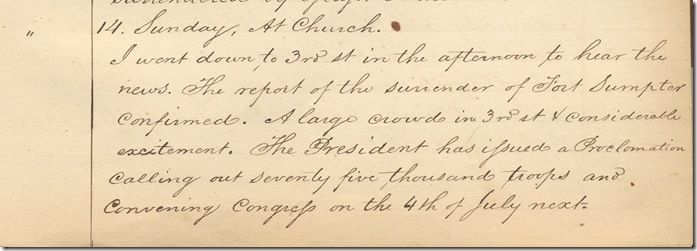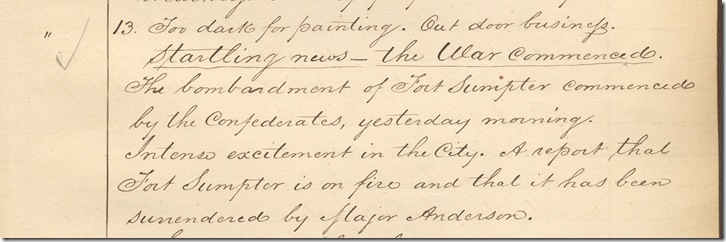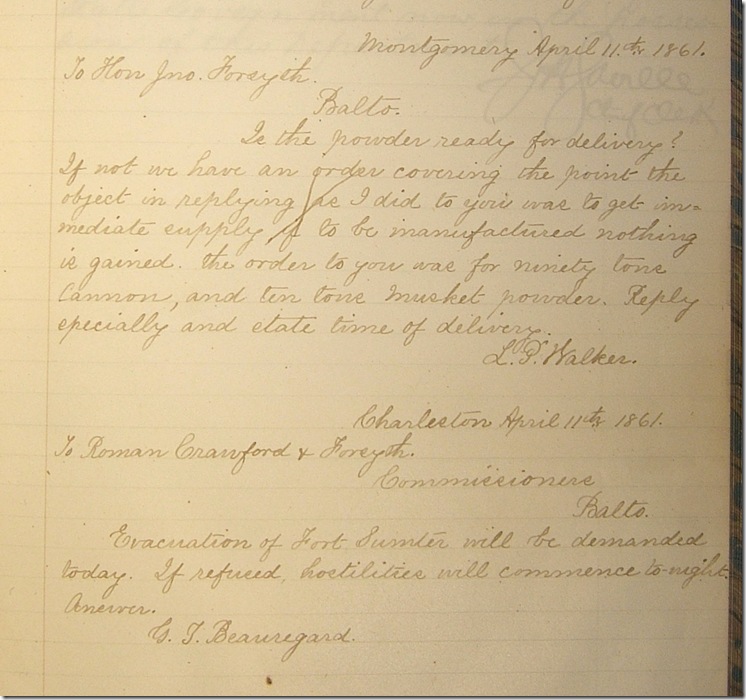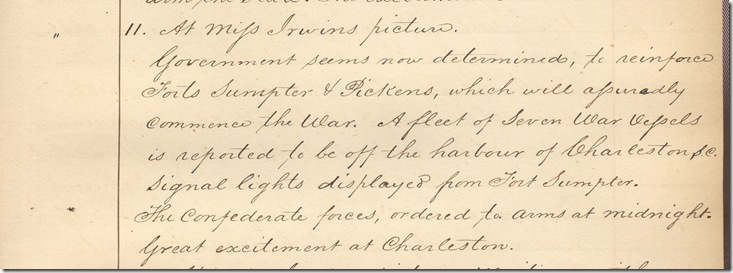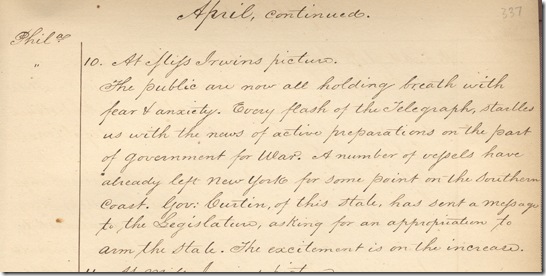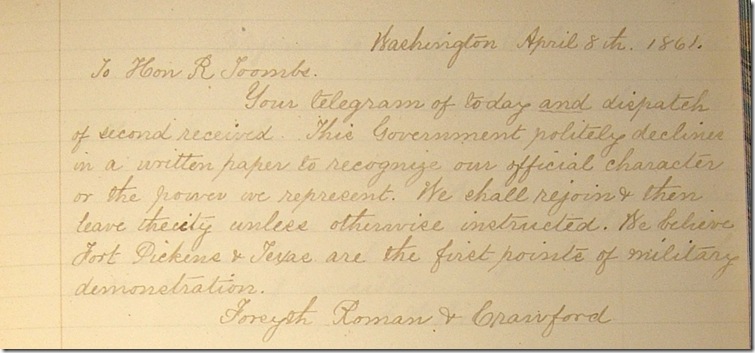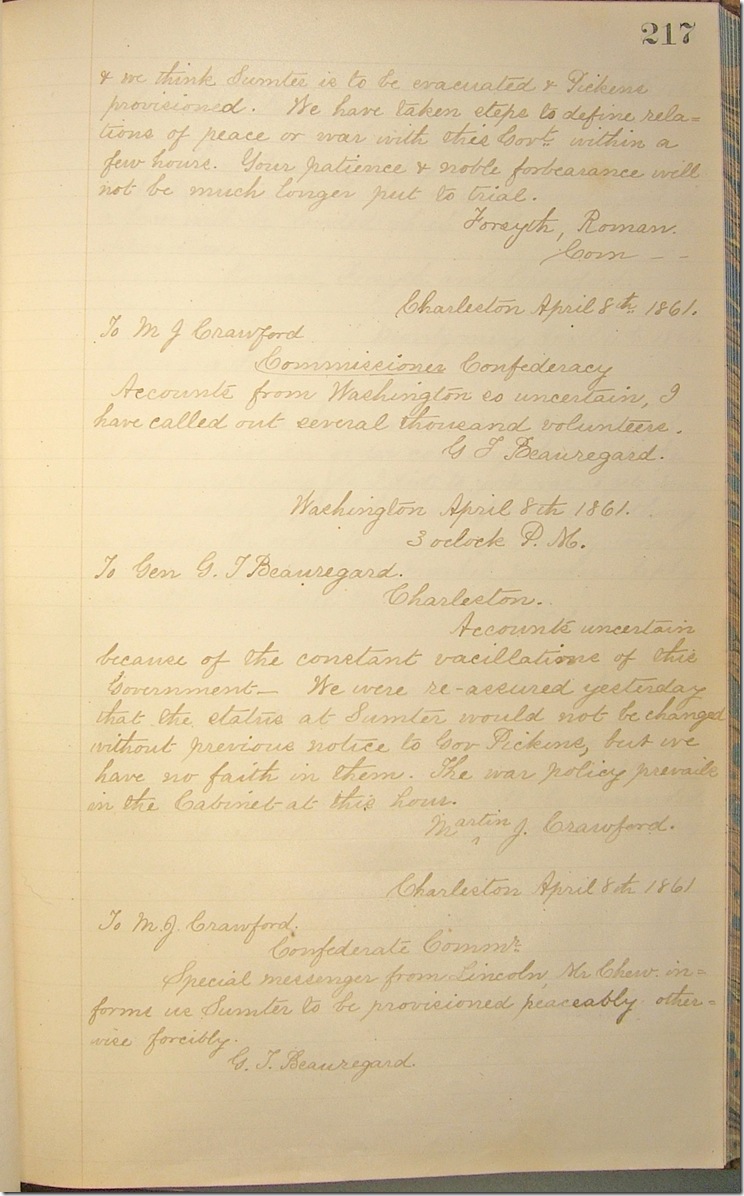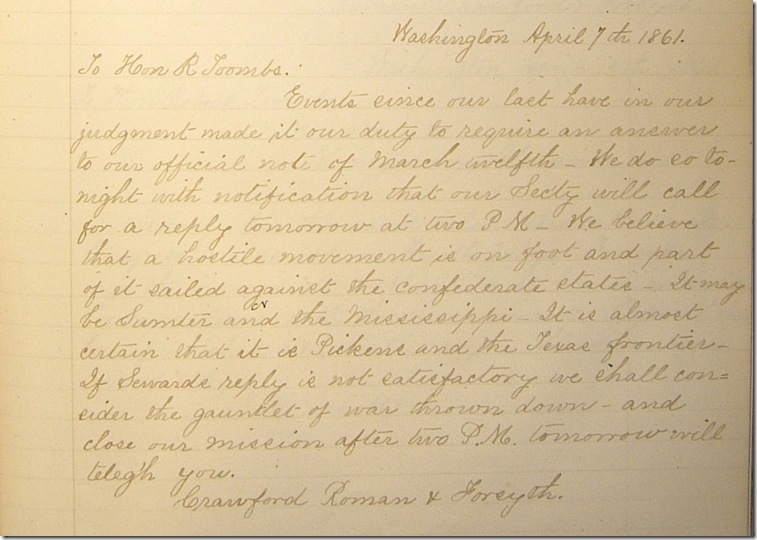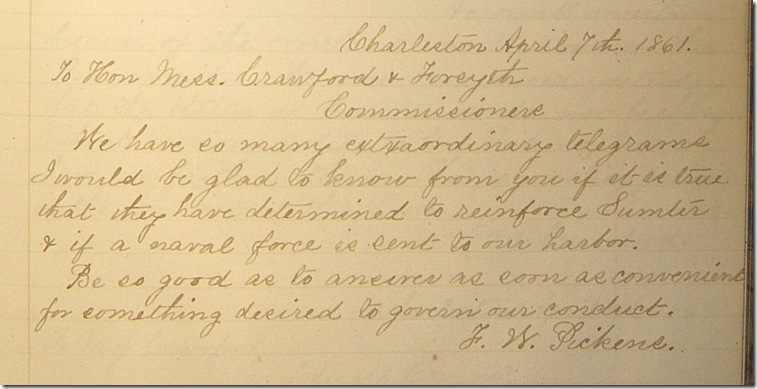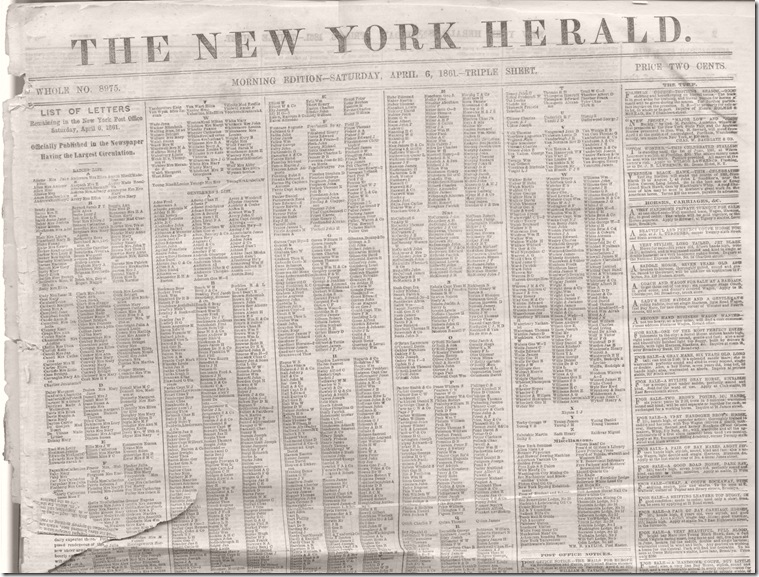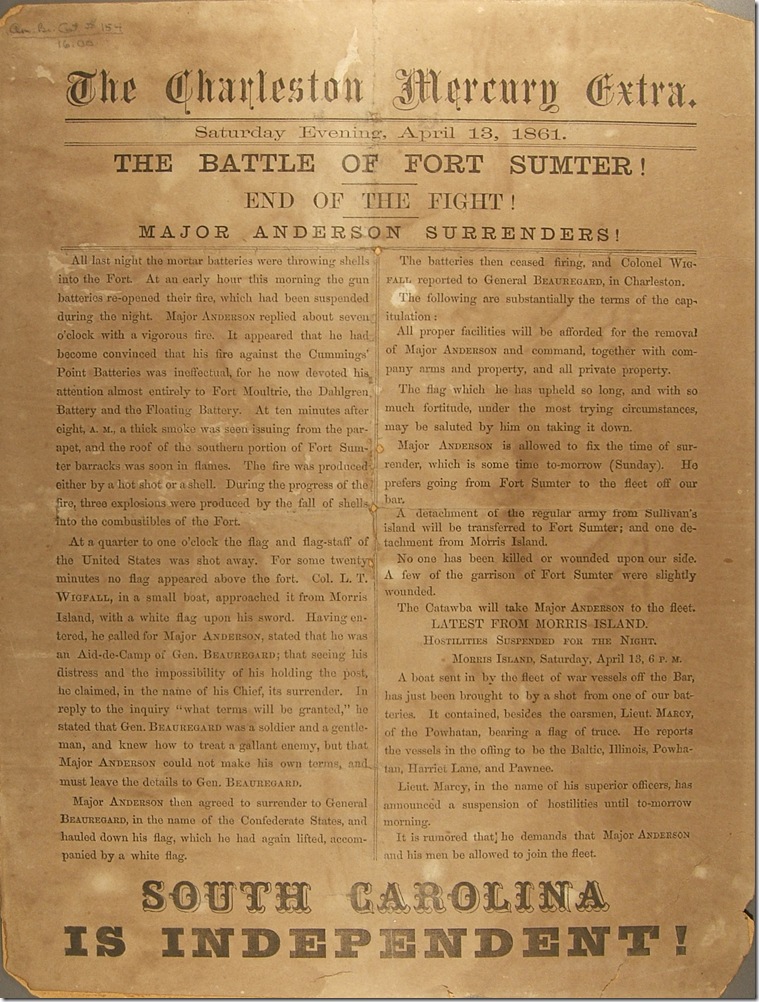
Transcript:
The Charleston Mercury Extra
Saturday Evening, April 13, 1861
THE BATTLE OF FORT SUMTER!
END OF THE FIGHT!
MAJOR ANDERSON SURRENDERS!
All last night the mortar batteries were throwing shells into the Fort. At an early hour this morning the gun batteries re-opened their fire, which had been suspended during the night. Major ANDERSON replied about seven o’clock with a vigorous fire. It appeared that he had become convinced that his fire against the Cummings’ Point Batteries was ineffectual, for he now devoted his attention almost immediately to Fort Moultrie, the Dahlgren Battery and the Floating Battery. At ten minutes after eight, A.M., a thick smoke was seen issuing from the parapet,and the roof of the southern portion of Fort Sumter barracks was soon in flames. The fire was produced either by a hot shot or a shell. During the progress of the fire, three explosions were produced by the fall of shells into the combustibles of the Fort.
At a quarter to one o’clock the flag and flag- staff of the United States was shot away. For some twenty minutes no flag appeared above the fort. Col. L.T. WIGFALL, in a small boat, approached it from Morris Island, with a white flag upon his sword. having entered, he called for Major ANDERSON, stated that he was an Aid-de-Campe of Gen. BEAUREGARD; that seeing his distress and the impossibility of his holding the post, he claimed, in the name of his Chief, its surrender. In reply to the inquiry “what terms will be granted,” he stated that Gen. BEAURGEARD was a soldier and a gentleman, and knew how to treat a gallant enemy, but that Major ANDERSON could not make his own terms, and must leave the details to Gen. BEAUREGARD,
Major ANDERSON then agreed to surrender to General BEUAREGARD, in the name of the Confederate States, and hauled down his flag, which he had again lifted, accompanied by a white flag.
The batteries then ceased firing, and Colonel WIGFALL reported to General BEAUREGARD, in Charleston. The following are substantially the terms of the capitulation:
All proper facilities will be afforded for the removal of Major ANDERSON and command, together with company arms and property, and all private property.
The flag which he has upheld so long, and with so much fortitude, under the most trying circumstances, may be saluted by him on taking it down.
Major ANDERSON is allowed to fix the time of surrender, which is some time to-morrow (Sunday). He prefers going from Fort Sumter to the fleet off our bar.
A detachment of the regular army from Sullivan’s island will be transferred to Fort Sumter; and one detachment from Morris island.
No one has been killed or wounded upon or side. A few of the garrison of Fort Sumter were slightly wounded.
The Catawba will take Major ANDERSON to the fleet.
LATEST FROM MORRIS ISLAND
HOSTILITIES SUSPENDED FOR THE NIGHT
MORRIS ISLAND, Saturday, April 13, 6 P.M.
a boat sent in by the fleet of war vessels off the Bar, has just been brought to by a shot from one of our batteries. it contained, besides the oarsmen, Lieut. MARCY, of the Powhatan, bearing a flag of truce. He reports the vessels in the offing to be the Baltic, Illinois, Powhatan, Harriet Lane, and Pawnee.
Lieut. Marcy, in the name of his superior officers, has announced a suspension of hostilities until tomorrow morning.
It is rumored that he demands that MAJOR ANDERSON and his men be allowed to join the fleet.
SOUTH CAROLINA IS INDEPENDENT!
Citation: Charleston Mercury extra. Charleston, 13 April 1861. AN .C477
